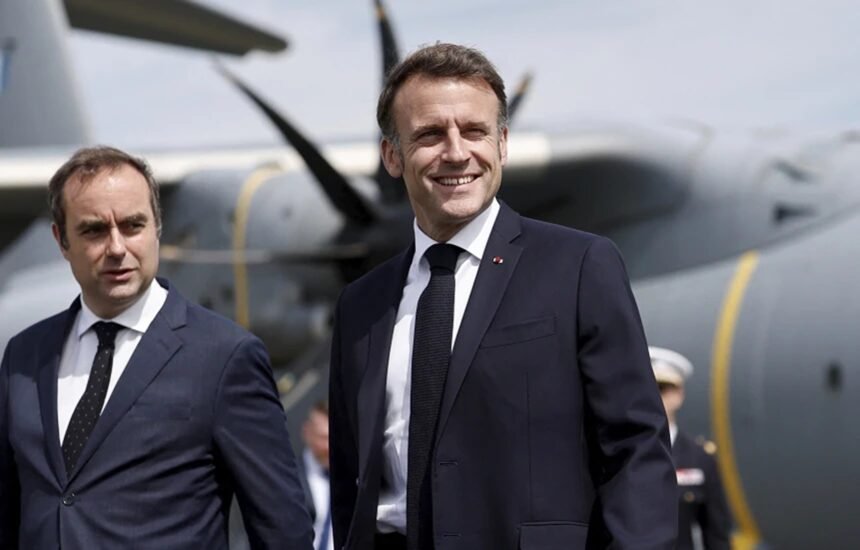French President Emmanuel Macron has appointed Sébastien Lecornu as the country’s new Prime Minister, marking the fifth head of government in less than two years, according to a statement from the president’s office.
The decision comes just one day after the ousting of former Prime Minister François Bayrou, who was forced to step down following a no-confidence vote in parliament over his proposed harsh austerity measures.
Lecornu’s appointment comes at a turbulent moment in French politics, with a fragmented parliament and Macron lacking a clear majority.
Bayrou, who took office in December last year, faced strong opposition to his plan to curb France’s ballooning budget deficit, which reached 5.8% of GDP last year — nearly double the EU’s 3% ceiling. France’s national debt now exceeds €3.3 trillion, or around 114% of its economic output. Bayrou lost the confidence vote heavily, with 364 against and 194 in favor, plunging Europe’s second-largest economy into another political crisis.
Sébastien Lecornu, 39, is a well-known figure in French politics and a close ally of President Macron. He has served as Defense Minister since Macron’s 2022 re-election and has been part of every government since Macron first came to power in 2017. Originally from the conservative Les Républicains party, Lecornu joined Macron’s centrist movement in 2017 and even led his 2022 re-election campaign.
Known as a skilled political operator, Lecornu has built relationships across the political spectrum, including a controversial dinner with far-right leader Marine Le Pen in April 2024, which sparked backlash from the left.
As Defense Minister, he oversaw increased military spending and played a central role in shaping European security policies, particularly regarding support for Ukraine in the event of a peace agreement with Russia.
Despite his relatively young age, Lecornu has a long political career, starting at 16 campaigning for former President Nicolas Sarkozy and becoming mayor of a small town in Normandy at 18.
His appointment as Prime Minister comes with enormous challenges. He must secure consensus in a divided parliament to pass the 2026 budget — a task that brought down his predecessor. Marine Le Pen’s far-right National Rally has signaled possible conditional support for Lecornu but warned it will not tolerate tax hikes on “hard-working people.” Meanwhile, socialists and other left-wing forces oppose Macron’s pro-business agenda, including the scrapping of the wealth tax and raising the retirement age, pledging to reverse them.
Macron appears to have chosen Lecornu to safeguard his economic legacy, preferring a loyal figure who shares his pro-business reform vision. Yet the lack of a clear majority in the National Assembly and persistent political tensions make Lecornu’s mission extremely difficult. Analysts suggest his appointment could be a “choice from the heart” by Macron, who faces the 2027 presidential election but cannot run again due to term limits.







